Midnight Mass, the brand new Netflix series from The Haunting of Hill House creator Mike Flanagan, tells the tale of the small, isolated community on Crockett Island whose existing divisions are amplified by the return of a disgraced young man (Zach Gilford) and the arrival of a charismatic priest, Father Paul (Hamish Linklater). When unexplained and seemingly miraculous events start occurring across the island, a renewed religious fervor takes hold of the community. But what is the price of these miracles? And what toll will they take on these islanders?
Umapagan Ampikaipakan: We’ve only seen the first two episodes of Midnight Mass (we were lucky enough to score some spots at a virtual fan screening that was held earlier this morning) and it already feels like Mike Flanagan’s best work. Beautifully paced. Thoughtful. Atmospheric. With characters that are distinct and interesting. In a world that feels so lived in that you can practically feel the weight of their baggage from the very first scene.
Over the last few years, with Hill House, Bly Manor, and even Doctor Sleep, Mike Flanagan has really begun to carve out his own unique voice when it comes to horror. And Midnight Mass feels like an evolution of that style. These are scary stories that are rooted in all of the things that haunt us as human beings, our weaknesses and our failures, as well as the mistakes we have made and the accidents that continue to torment us. There may be actual ghosts from time to time, but the real terror comes from the burden of being human.
Bahir Yeusuff: And isn’t that what we learned from Hill House? That the burdens of being human is the worst horror of all. That the haunting that comes from our own past and stories, either lived or inherited, is what will really keep us up at night.
Midnight Mass feels like classic Mike Flanagan. There’s always something lurking in the shadows. Nothing is as it seems. Characters are friendly but potentially sinister. And Rahul Kohli. All of these have become Mike Flanagan story touchstones. (No, Kohli wasn’t in the first Haunting iteration, but he really feels completely at home within the Mike Flanagan troupe.)
I know the running joke among the three of us here at Goggler is that I don’t like horror movies, but the more I watch Mike Flanagan the more I’ve come to realize what I don’t like is bad horror. The kind of horror that feels the need to gruesomely murder someone, or drop in a jump scare, just to keep viewers invested.
Midnight Mass is the kind of horror that I love. The tension, the dread, all amplified by that constant overcast Northeastern American sky. It tunes into a feeling of despair and dread and keeps you there, never resorting to a cheap fake out or jump scare just to release that knot in your stomach. I know I’ve only seen the first two episodes but I’m loving it so far.
Hell Is Other People
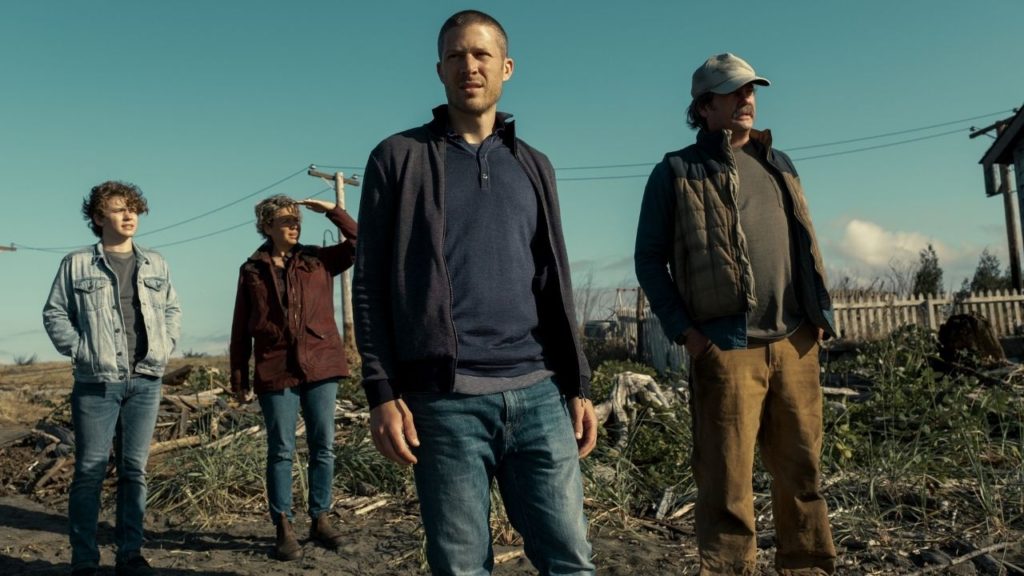
UA: For me Midnight Mass is all about these characters he’s crafted and how he tells us so much by saying so little. In the opening of the first episode, we witness a one-sided phone call between Annie Flynn (Kristin Lehman) and her son, Riley (Zach Gilford), who is just about to be let out of prison. In that one scene, we learn everything we need to know about the dynamics of that family. The forlorn father. The blinkered mother. And their youngest son who is powerless to help them in any way. All of it is done with minimal dialogue. All of it is so immediately relatable that we are completely inside the story before we even realise it.
God man, the writing here is so good.
BY: Speaking of the writing, there was something that you picked up on in that first episode that I saw completely differently. Rahul Kohli plays the town sheriff, who also happens to be Muslim. Early on in the first episode the town drunk calls him Sharif, a nod actor Omar Sharif, and the fact that the sheriff is a Muslim. You called that casual (but clever) racism, whereas I saw it as a term of endearment, something to bring this new addition to the town into the fold. I did not see that as racism at all, and maybe that’s the point of casual racism.
If anything, I thought the Mayor’s “invitation” to Mass as being a little more racist. In his insistence that coming to Mass wasn’t him trying to convert Kohli’s character, but rather to make him more a part of this borderline puritanical community.
That depth of writing, in never letting a throwaway line be just another throwaway line, is a hallmark of Flanagan’s work. What could have just been an awkward moment between two people, instead draws upon the viewer’s own baggage and lets each one of us interpret it in our own way, and colour the characters as we see them. Nothing here is wasted.
UA: What all of this does is build a quiet tension between every character. Those throwaway lines do more than just establish character, they fester. In them, and in us. So much so that it begins to cloud our perception of everything that’s happening on this island. Was it just an accident that left a young girl in a wheelchair? How about the dog that suddenly froths at the mouth and dies? That slow burn creates a wonderful uneasiness. This is the kind of horror that stays with you long after an episode ends. This is the kind of horror that doesn’t just rely on strange creatures that hide in shadows.
Here, the ties that bind this community are also the ones that have scarred them, and silenced them, and now seems hell bent on slaughtering them.
To Binge or Not to Binge?
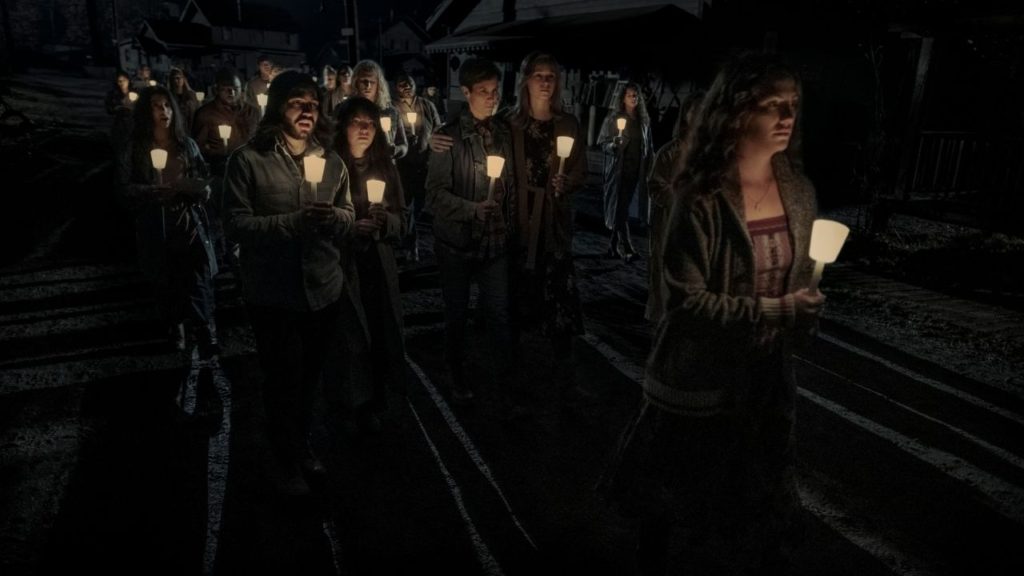
UA: Midnight Mass feels like it’s going to linger.
BY: And long may it linger. This is the kind of horror that requires the end credits. It gives you the time to breathe and think about what you just saw. Take it from us, if there is any show that you don’t want to immediately jump into the next episode it is Midnight Mass. Yes, there were many questions in these first two episodes that I want answered. But I don’t want them answered immediately. I want the characters to have to work for it. I want to earn the answers to the mysteries of Crockett Island and it’s parishioners.
UA: I love that you call the citizens of the island “parishioners.” Because that idea remains at the core of what we’re seeing in Midnight Mass. If religion be the opiate of the masses, and if America is particularly drugged up, then this is a thoughtful look at how individuals can exploit the church in order to exert influence and control. This isn’t the story of governments, or politicians, or the elite using religion to shepherd the masses. This is you and me, and how our individual beliefs can be foisted upon our neighbours in casual and cunning ways.
BY: I am going to enjoy this so much when it drops tomorrow. There are so many things at play here. The mysteries feel layered and coloured by prejudices, and history, and baggage. Both of the characters and ourselves. This will be so much fun.
UA: Is this excitement going to translate into a binge? Are you going to be able to contain yourself. Because I’m genuinely torn. I want to take my time. But I am also weak to Netflix’s wiles.
BY: I think I’m going to take my time with it. And by that, I mean watching a couple episodes at a time and then taking a break to let it sink in. I suspect I will end up finishing it over the weekend, but I won’t rush it. I think it deserves to be given the time to breathe. I also think I’d enjoy it a lot more.
UA: I’m not making any promises. I do know, however, that when Midnight Mass drops on Netflix tomorrow, I’m not going to start from Episode 3, but rewatch these first two episodes again. Like Hill House and Bly Manor, I’m pretty sure it contains a treasure trove of teeny tiny details for me to discover.


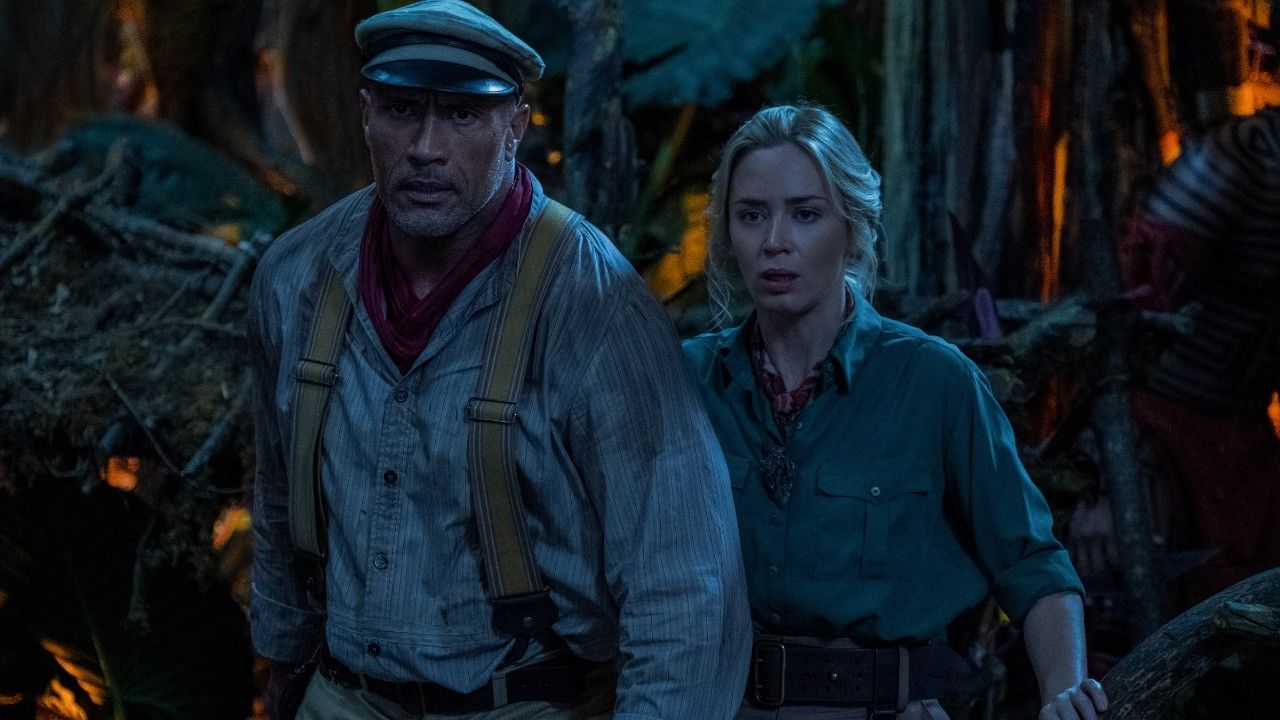
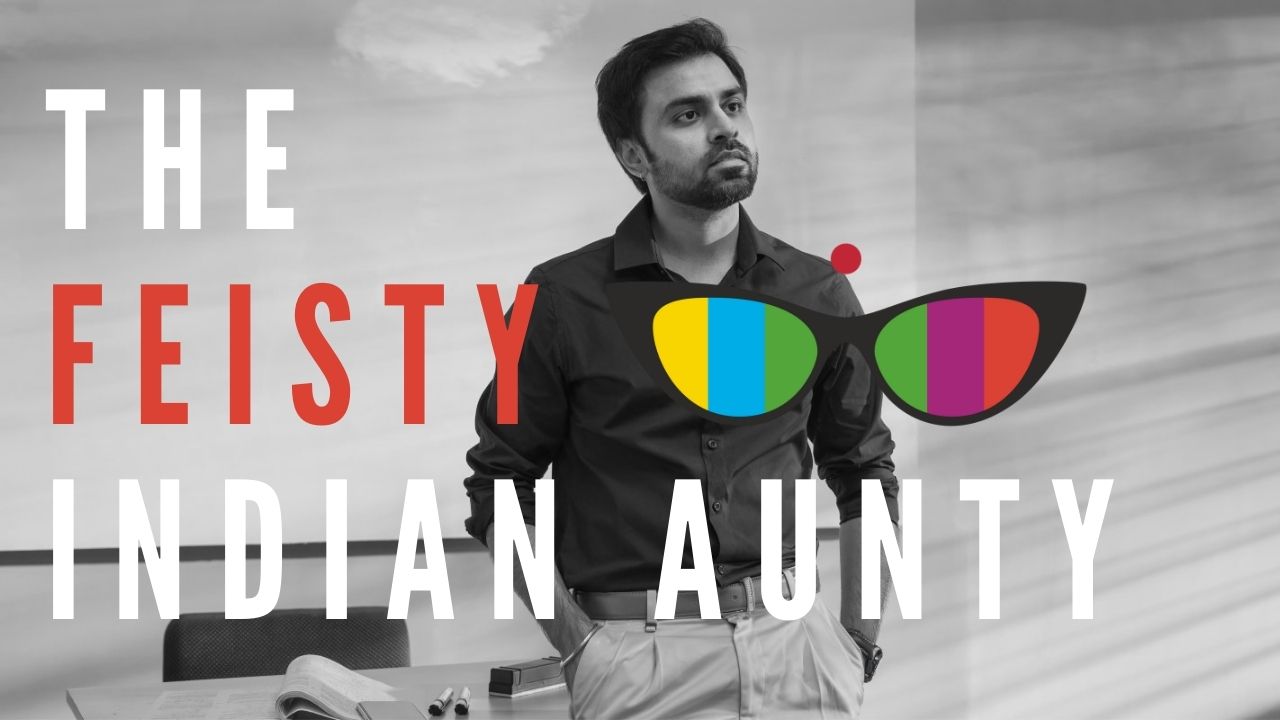
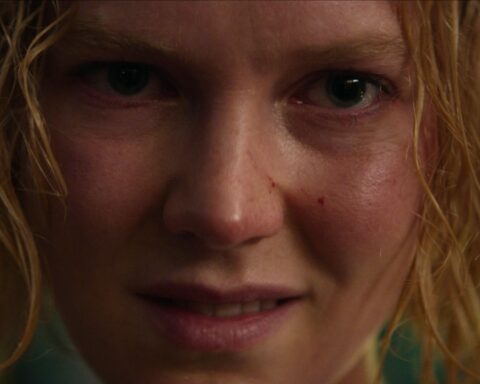

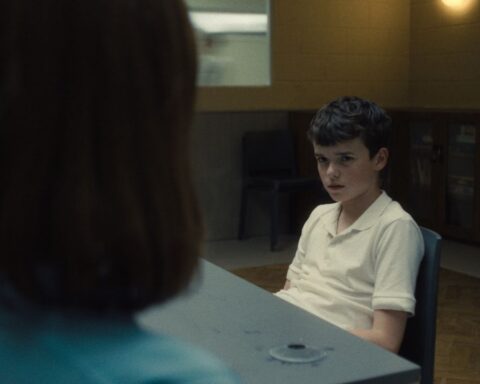
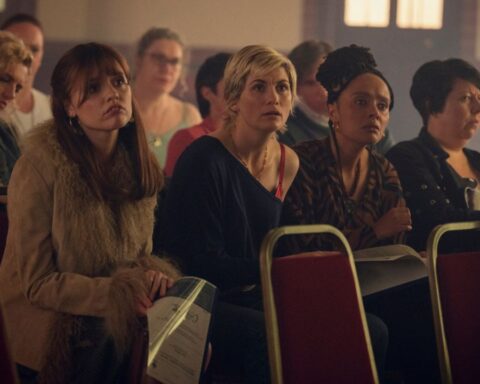
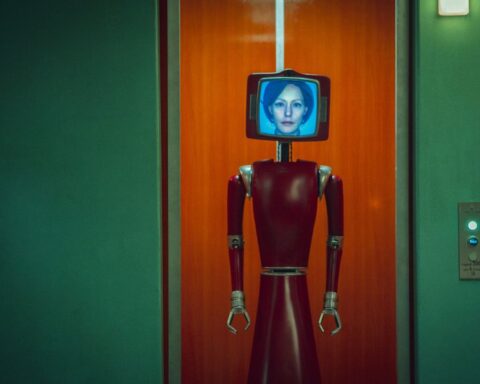
Follow Us